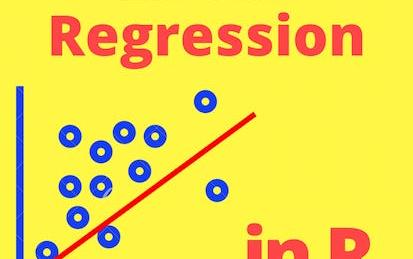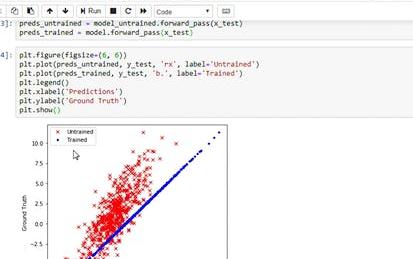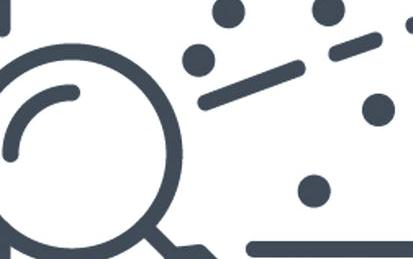

دوراتنا
Inferential and Predictive Statistics for Business
This course provides an analytical framework to help you evaluate key problems in a structured fashion and will equip you with tools to better manage the uncertainties that pervade and complicate business processes. To this end, the course aims to cover statistical ideas that apply to managers by discussing two basic themes: first, is recognizing and describing variations present in everything around us, and then modeling and making decisions in the presence of these variations. The fundamental concepts studied in this course will reappear in many other classes and business settings.
-
Course by

-
 Self Paced
Self Paced
-
 19 ساعات
19 ساعات
-
 الإنجليزية
الإنجليزية

Fitting Statistical Models to Data with Python
In this course, we will expand our exploration of statistical inference techniques by focusing on the science and art of fitting statistical models to data. We will build on the concepts presented in the Statistical Inference course (Course 2) to emphasize the importance of connecting research questions to our data analysis methods.
-
Course by

-
 Self Paced
Self Paced
-
 15 ساعات
15 ساعات
-
 الإنجليزية
الإنجليزية

Linear Regression for Business Statistics
Regression Analysis is perhaps the single most important Business Statistics tool used in the industry. Regression is the engine behind a multitude of data analytics applications used for many forms of forecasting and prediction. This is the fourth course in the specialization, "Business Statistics and Analysis". The course introduces you to the very important tool known as Linear Regression. You will learn to apply various procedures such as dummy variable regressions, transforming variables, and interaction effects.
-
Course by

-
 Self Paced
Self Paced
-
 28 ساعات
28 ساعات
-
 الإنجليزية
الإنجليزية
Mastering Data Analysis in Excel
Important: The focus of this course is on math - specifically, data-analysis concepts and methods - not on Excel for its own sake. We use Excel to do our calculations, and all math formulas are given as Excel Spreadsheets, but we do not attempt to cover Excel Macros, Visual Basic, Pivot Tables, or other intermediate-to-advanced Excel functionality. This course will prepare you to design and implement realistic predictive models based on data.
-
Course by

-
 Self Paced
Self Paced
-
 21 ساعات
21 ساعات
-
 الإنجليزية
الإنجليزية

Linear Regression and Modeling
This course introduces simple and multiple linear regression models. These models allow you to assess the relationship between variables in a data set and a continuous response variable. Is there a relationship between the physical attractiveness of a professor and their student evaluation scores? Can we predict the test score for a child based on certain characteristics of his or her mother?
-
Course by

-
 Self Paced
Self Paced
-
 10 ساعات
10 ساعات
-
 الإنجليزية
الإنجليزية

Machine Learning: Regression
Case Study - Predicting Housing Prices In our first case study, predicting house prices, you will create models that predict a continuous value (price) from input features (square footage, number of bedrooms and bathrooms,...). This is just one of the many places where regression can be applied.
-
Course by

-
 Self Paced
Self Paced
-
 22 ساعات
22 ساعات
-
 الإنجليزية
الإنجليزية

Mathematics for Machine Learning: Multivariate Calculus
This course offers a brief introduction to the multivariate calculus required to build many common machine learning techniques. We start at the very beginning with a refresher on the “rise over run” formulation of a slope, before converting this to the formal definition of the gradient of a function. We then start to build up a set of tools for making calculus easier and faster. Next, we learn how to calculate vectors that point up hill on multidimensional surfaces and even put this into action using an interactive game.
-
Course by

-
 Self Paced
Self Paced
-
 18 ساعات
18 ساعات
-
 الإنجليزية
الإنجليزية

Statistical Modeling for Data Science Applications
Statistical modeling lies at the heart of data science. Well crafted statistical models allow data scientists to draw conclusions about the world from the limited information present in their data. In this three credit sequence, learners will add some intermediate and advanced statistical modeling techniques to their data science toolkit. In particular, learners will become proficient in the theory and application of linear regression analysis; ANOVA and experimental design; and generalized linear and additive models.
-
Course by

-
 Self Paced
Self Paced
-
 الإنجليزية
الإنجليزية

Advanced Statistics for Data Science
Fundamental concepts in probability, statistics and linear models are primary building blocks for data science work. Learners aspiring to become biostatisticians and data scientists will benefit from the foundational knowledge being offered in this specialization. It will enable the learner to understand the behind-the-scenes mechanism of key modeling tools in data science, like least squares and linear regression. This specialization starts with Mathematical Statistics bootcamps, specifically concepts and methods used in biostatistics applications.
-
Course by

-
 Self Paced
Self Paced
-
 الإنجليزية
الإنجليزية
Machine Learning with Python
Get ready to dive into the world of Machine Learning (ML) by using Python! This course is for you whether you want to advance your Data Science career or get started in Machine Learning and Deep Learning. This course will begin with a gentle introduction to Machine Learning and what it is, with topics like supervised vs unsupervised learning, linear & non-linear regression, simple regression and more. You will then dive into classification techniques using different classification algorithms, namely K-Nearest Neighbors (KNN), decision trees, and Logistic Regression.
-
Course by

-
 Self Paced
Self Paced
-
 33 ساعات
33 ساعات
-
 الإنجليزية
الإنجليزية

Predict Sales Revenue with scikit-learn
In this 2-hour long project-based course, you will build and evaluate a simple linear regression model using Python. You will employ the scikit-learn module for calculating the linear regression, while using pandas for data management, and seaborn for plotting. You will be working with the very popular Advertising data set to predict sales revenue based on advertising spending through mediums such as TV, radio, and newspaper.
By the end of this course, you will be able to:
- Explain the core ideas of linear regression to technical and non-technical audiences
-
Course by

-
 Self Paced
Self Paced
-
 3 ساعات
3 ساعات
-
 الإنجليزية
الإنجليزية

Predicting Salaries with Simple Linear Regression in R
In this 1-hour long project-based course, you will learn how to create a simple linear regression algorithm and use it to solve a basic regression problem. By the end of this project, you will have built, trained, tested, and visualized a Regression model that will be able to accurately predict the salary of a data scientist if provided with some information about years of experience.
In order to be successful in this project, you should just know the basics of R and linear regression.
-
Course by

-
 Self Paced
Self Paced
-
 3 ساعات
3 ساعات
-
 الإنجليزية
الإنجليزية

Linear Regression and Multiple Linear Regression in Julia
This guided project is for those who want to learn how to use Julia for linear regression and multiple linear regression. You will learn what linear regression is, how to build linear regression models in Julia and how to test the performance of your model.
While you are watching me code, you will get a cloud desktop with all the required software pre-installed. This will allow you to code along with me. After all, we learn best with active, hands-on learning.
Special Features:
1) Work with real-world stock market data.
2) Best practices and tips are provided.
-
Course by

-
 Self Paced
Self Paced
-
 2 ساعات
2 ساعات
-
 الإنجليزية
الإنجليزية

Survival Analysis in R for Public Health
Welcome to Survival Analysis in R for Public Health! The three earlier courses in this series covered statistical thinking, correlation, linear regression and logistic regression. This one will show you how to run survival – or “time to event” – analysis, explaining what’s meant by familiar-sounding but deceptive terms like hazard and censoring, which have specific meanings in this context.
-
Course by

-
 Self Paced
Self Paced
-
 12 ساعات
12 ساعات
-
 الإنجليزية
الإنجليزية

Supervised Machine Learning: Regression and Classification
In the first course of the Machine Learning Specialization, you will: • Build machine learning models in Python using popular machine learning libraries NumPy and scikit-learn. • Build and train supervised machine learning models for prediction and binary classification tasks, including linear regression and logistic regression The Machine Learning Specialization is a foundational online program created in collaboration between DeepLearning.AI and Stanford Online.
-
Course by

-
 Self Paced
Self Paced
-
 33 ساعات
33 ساعات
-
 الإنجليزية
الإنجليزية

XG-Boost 101: Used Cars Price Prediction
In this hands-on project, we will train 3 Machine Learning algorithms namely Multiple Linear Regression, Random Forest Regression, and XG-Boost to predict used cars prices. This project can be used by car dealerships to predict used car prices and understand the key factors that contribute to used car prices.
By the end of this project, you will be able to:
- Understand the applications of Artificial Intelligence and Machine Learning techniques in the banking industry
- Understand the theory and intuition behind XG-Boost Algorithm
-
Course by

-
 Self Paced
Self Paced
-
 3 ساعات
3 ساعات
-
 الإنجليزية
الإنجليزية

Linear Regression with Python
In this 2-hour long project-based course, you will learn how to implement Linear Regression using Python and Numpy. Linear Regression is an important, fundamental concept if you want break into Machine Learning and Deep Learning.
-
Course by

-
 Self Paced
Self Paced
-
 2 ساعات
2 ساعات
-
 الإنجليزية
الإنجليزية

Data Science with R - Capstone Project
In this capstone course, you will apply various data science skills and techniques that you have learned as part of the previous courses in the IBM Data Science with R Specialization or IBM Data Analytics with Excel and R Professional Certificate. For this project, you will assume the role of a Data Scientist who has recently joined an organization and be presented with a challenge that requires data collection, analysis, basic hypothesis testing, visualization, and modeling to be performed on real-world datasets.
-
Course by

-
 Self Paced
Self Paced
-
 26 ساعات
26 ساعات
-
 الإنجليزية
الإنجليزية

Necessary Condition Analysis (NCA)
Welcome to Necessary Condition Analysis (NCA). NCA analyzes data using necessity logic. A necessary condition implies that if the condition is not in place, there will be guaranteed failure of the outcome. The opposite however is not true; if the condition is in place, success of the outcome is not guaranteed. Examples of necessary conditions are a student’s GMAT score for admission to a PhD program; a student will not be admitted to a PhD program when his GMAT score is too low.
-
Course by

-
 Self Paced
Self Paced
-
 7 ساعات
7 ساعات
-
 الإنجليزية
الإنجليزية

Business Statistics and Analysis
The Business Statistics and Analysis Specialization is designed to equip you with a basic understanding of business data analysis tools and techniques. Informed by our world-class Data Science master's and PhD course material, you’ll master essential spreadsheet functions, build descriptive business data measures, and develop your aptitude for data modeling. You’ll also explore basic probability concepts, including measuring and modeling uncertainty, and you’ll use various data distributions, along with the Linear Regression Model, to analyze and inform business decisions.
-
Course by

-
 Self Paced
Self Paced
-
 الإنجليزية
الإنجليزية

Data Science: Linear Regression
Learn how to use R to implement linear regression, one of the most common statistical modeling approaches in data science.
-
Course by

-
 Self Paced
Self Paced
-
 35
35
-
 الإنجليزية
الإنجليزية

Introduction to Statistical Analysis: Hypothesis Testing
This introductory course is for SAS software users who perform statistical analyses using SAS/STAT software. The focus is on t tests, ANOVA, and linear regression, and includes a brief introduction to logistic regression.
-
Course by

-
 Self Paced
Self Paced
-
 10 ساعات
10 ساعات
-
 الإنجليزية
الإنجليزية

Mining Quality Prediction Using Machine & Deep Learning
In this 1.5-hour long project-based course, you will be able to: - Understand the theory and intuition behind Simple and Multiple Linear Regression. - Import Key python libraries, datasets and perform data visualization - Perform exploratory data analysis and standardize the training and testing data. - Train and Evaluate different regression models using Sci-kit Learn library. - Build and train an Artificial Neural Network to perform regression. - Understand the difference between various regression models KPIs such as MSE, RMSE, MAE, R2, and adjusted R2. - Assess the performance of regressio
-
Course by

-
 Self Paced
Self Paced
-
 2 ساعات
2 ساعات
-
 الإنجليزية
الإنجليزية

Statistical Analysis with R for Public Health
Statistics are everywhere. The probability it will rain today. Trends over time in unemployment rates. The odds that India will win the next cricket world cup. In sports like football, they started out as a bit of fun but have grown into big business. Statistical analysis also has a key role in medicine, not least in the broad and core discipline of public health. In this specialisation, you’ll take a peek at what medical research is and how – and indeed why – you turn a vague notion into a scientifically testable hypothesis.
-
Course by

-
 Self Paced
Self Paced
-
 الإنجليزية
الإنجليزية

Regression Analysis: Simplify Complex Data Relationships
This is the fifth of eight courses in the Google Advanced Data Analytics Certificate. Data professionals use regression analysis to discover the relationships between different variables in a dataset and identify key factors that affect business performance. In this course, you’ll practice modeling variable relationships. You'll learn about different methods of data modeling and how to use them to approach business problems. You’ll also explore methods such as linear regression, analysis of variance (ANOVA), and logistic regression.
-
Course by

-
 Self Paced
Self Paced
-
 32 ساعات
32 ساعات
-
 الإنجليزية
الإنجليزية



